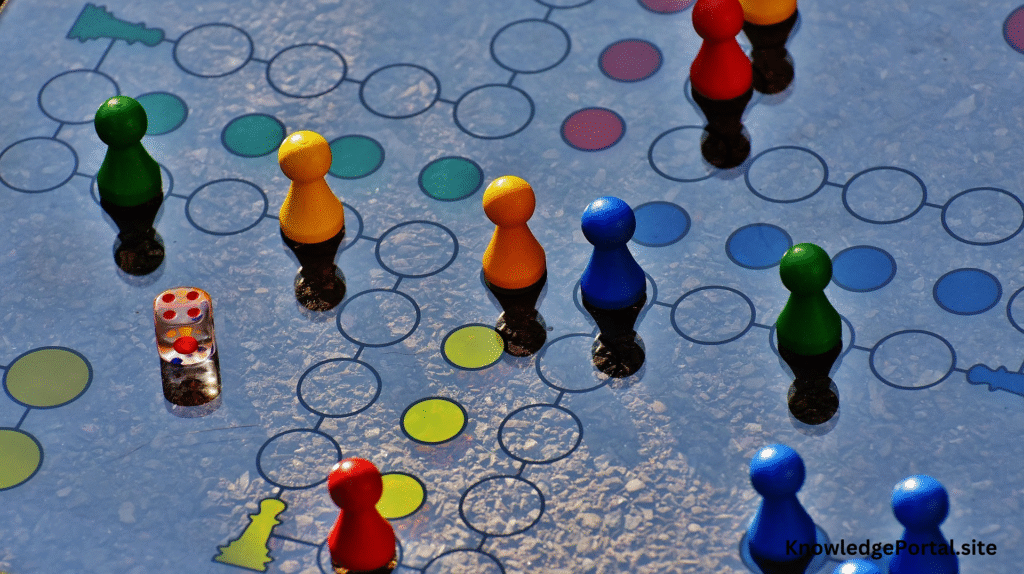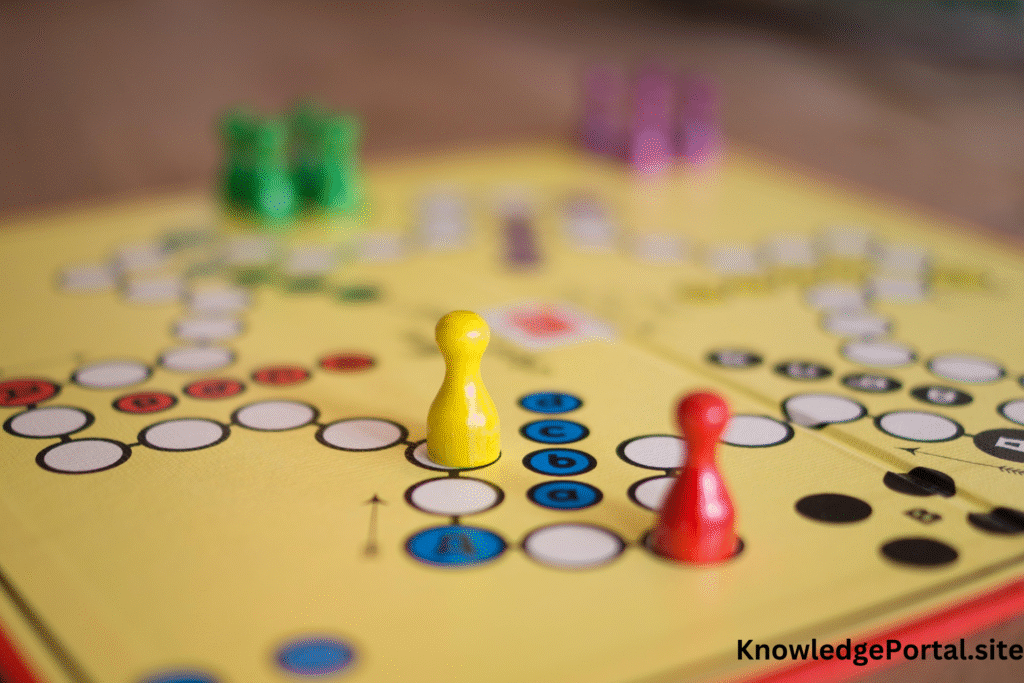Parents and teachers are continuously looking for efficient approaches to include children in learning in a time of digital screens and rapid technologies. Children’s instructional board games are one timeless fix that keeps proving their worth. Both young people and adults enjoy these games since they mix fun with education. Board games give a hands-on, interactive approach to reinforce academic ideas, social skills, and critical thinking whether they are played at home or in a classroom.
Why would one choose kid’s educational board games?
There are various benefits educational board games provide over conventional learning environments. They not only grab children’s interest but also support the reinforcement of low-stress skills development. Here’s why you ought to think about including these into your child’s schedule:
Interactive Learning: Board games call for active engagement unlike worksheets or screen-based learning. Children engage in game and peer interactions that improve their coordination and communication abilities.
Encourages critical thinking since many board games call for strategy, reason, and judgement. Both regular problem-solving and academic performance depend on these cognitive abilities.
Playing board games helps kids learn social skills including turn-taking, rule following, team building, and gracious handling of winning or losing.
Reduces Screen Time: Promoting face-to–face interaction and screen-free enjoyment, board games provide a good substitute for tablets and smartphones.
Flexible across all ages and learning levels: There is an instructional board game catered to your child’s age and developmental level whether they are in middle school or preschool.
Top Educational Board Games Categories
Knowing the several categories of instructional board games for children helps one search more effectively. Every game aims at particular competencies or topics:
1. Mathematics Board Games
For many children, maths can be a difficult topic; games might help them to find it more approachable.
Great for honing addition and subtraction, Sum Swamp (for ages five+)
Money bags teach children financial literacy and money counting.
Designed for players ten years of age and above, Prime Climb is a vibrant strategy game examining mathematics and prime numbers.
2. Reading and Language Board Games
Games emphasising grammar, spelling, and vocabulary help students acquire language by interesting means.
For those four years and above: a bingo-style game designed to develop sight-word awareness.
Scrabble Junior supports spelling and word building.
Older children will find fast-paced word creation games called Bananagrams appropriate.
3. Nature’s Science Board Games
These games expose children to scientific ideas in an entertaining, easily absorbed style.
Inspired by the renowned show, the Magic School Bus Science Explosion blends fascinating gameplay with scientific facts.
Natural Craftsmanship! An Herbal Adventure Game imparts knowledge of environment and plants.
A graphically amazing game exploring tree growth and survival is photosynthesis.
4. Historical and Geographic Board Games
Guide children in learning about several civilisations and eras and in exploring the globe.
Ticket to Ride: First Journey: Addresses geography and design.
BrainBox: World History: An historical fact-packed memory game.
Encouragement of map reading and state recognition drives the Scrambled States of America.
5. Strategic Games and Logic
With these brain-boosting games, develop forward-thinking, problem-solving ability.
Junior Rush Hour: A junior logical puzzle game.
Gravity Maze blends engineering with reasoning.
introduces to young students fundamental coding ideas through Robot Turtles.
How to Select the Appropriate Learning Board Game for Your Young Child
Having so many choices makes choosing the best game taxing. These elements should help you to think through:
Always refer to the box’s advised age range. While one too basic may lose a child’s interest, a too complicated game can frustrate them.
Academic or developmental area you wish to target—math, reading, science, social skills, etc.?
Game Time: Think about how long your child can remain involved. Younger children with weaker attention spans find shorter games to be more suited.
While certain games are suitable for family or group environments, others are best for two players.
Look for games whose appeal holds true even after several runs.
Advice for Creating Particularly Powerful Educational Games
Remember these ideas to maximise the advantages of teaching children instructive board games:
Children gain more when parents or other carers play with them, guiding them across rules and supporting learning opportunities.
Keep a little collection and alternate games to keep fresh and interesting.
Include games into your daily schedule to provide consistency and excitement. Plan game night often.
Celebrate little victories to inspire confidence and a passion of learning by honouring efforts and benchmarks.
Use Games in Homeschooling: A excellent approach to augment courses and relieve the monotony of textbooks is using board games.
Advantages of Research Supported Educational Board Games
Play-based learning has been found in studies to greatly increase recall, motivation, and involvement. A research from the American Academy of Paediatrics claims that, particularly in early life, play is crucial for brain development. Linking learning goals to gameplay, educational board games expand on this idea.
Moreover, board games enable kids to acquire “soft skills” including patience, empathy, teamwork, and adaptability—qualities as vital as intellectual understanding in the modern society.
Popular Companies and Publishers of Instructional Board Games
If you want reliable names in instructional games, give some thought to the following:
Known for STEM-based games such Gravity Maze and Rush Hour, ThinkFun
Learning Resources provide games like Money Bags and Sum Swamp.
Teachers of games like MathShark and The Sneaky, Snacky Squirrel Game.
Specialised in cooperative games fostering teamwork, Peaceable Kingdom
Where might one purchase kid’s educational board games?
Most big stores and internet sites have instructional board games available:
Amazon: quick delivery and great range with customer reviews.
Target & Walmart have reasonably priced choices both online and in-store.
Specialised choices for classroom or home use are educational supply stores.
Toy Stores: Often featuring hands-on testing, brick-and-mortar stores provide demo games.
Remember to go through local libraries that might have board games or second-hand markets.
Ultimately
More than just fun, educational board games for children are a great instrument for piqueing interest, honing abilities, and encouraging a passion of learning. There is a game available to aid your youngster whether they have difficulty in a certain topic or just need a pleasant approach to learn.
Parents and teachers can significantly influence a child’s development by selecting appropriate games, playing often, and supporting good learning opportunities. Given so many advantages and choices, now is the ideal time to delve into the realm of instructional board games.